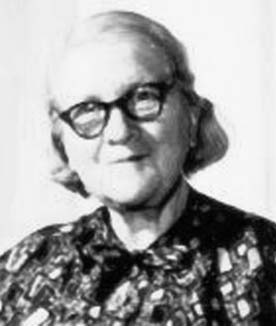For this week’s Role Model, my thanks go to the women’s department at TU Wien’s Student’s Union. Part of their campaing for yesterday’s International Women’s Day was to rename some of the most used lecture rooms at TU, giving them names of female scientists. This is how I found today’s Role Model: Rózsa Péter.

Rósza Péter attended Pázmány Péter University (the oldest and largest university in Hungary, later renamed Eötvös Loránd University) starting in 1922. She at first wanted to study chemistry, but soon discovered that her true passion lay with Mathematics. Graduating in 1927, she started to work as a tutor and teacher at high schools, but also started her graduate studies.
Begin told about Gödel’s work on incompleteness, she started to work on her own proofs in the field, focusing on the recursive functions used by Gödel. She published several papers, proposing to treat recursive functions as a seperated sub-field of mathematics, making her one of the founders of this field of mathematical research. In 1935, she received her PhD (summa cum laude). As of 1937, she was a contributing editor at the Journal of Logic.
When the Fascists took over in Hungary in 1939, Rósza Péter lost her permission to teach, due to her jewish roots. Still researching and writing during the war times, she published “Playing with Infinity” in 1943, where she discussed number theory and logic for lays.
In 1951 she published a monograph, Recursive Functions, and in 1955, she became a professor at Eötvös Loránd University (her renamed alma mater), until her retirement in 1975. In 1976, she published Recursive Functions in Computer Theory. This book was the 2nd Hungarian book on mathematics to be published also in the Soviet Union, as the matter was considered essential to the theory of computers.
Some information can be found at wikipedia,and the websites of Agnes Scott College and the San Diego Supercomputer Center published short biographies referencing more interesting sources, too.



